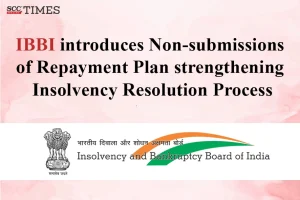On 19-5-2025, the Insolvency and Bankruptcy Board of India (‘IBBI’) notified the Insolvency and Bankruptcy Board of India (Insolvency Resolution Process for Personal Guarantors to Corporate Debtors) (Amendment) Regulations, 2025 revising the provisions of insolvency resolution process. This Amendment came into effect on 19-5-2025.
Key Points:
-
By amending Insolvency and Bankruptcy Board of India (Insolvency Resolution Process for Personal Guarantors to Corporate Debtors) Regulations, 2019, a stricter norm relating to repayment plan is introduced by IBBI for the efficient debt resolution and to allow the Authority to assess insolvency process.
-
Non-submissions of repayment plan by the debtors in insolvency cases will be addressed by this regulation, with aim to avoid delays in repayments and strengthening creditor’s right.
-
With the powers conferred in S. 105 of Insolvency and Bankruptcy Code, 2016, a formal intervention can be initiated upon the debtors who fail to submit repayment plan, ensuring creditors have structured recourse.
-
The submissions will be required to be made to the Adjudicating Authority, which, in most cases refers to National Company Law Tribunal (‘NCLT’).
-
The Resolution Professional will inform the Adjudicating Authority about the debtor’s non-compliance, only after obtaining creditor’s approval.
-
The Adjudicating Authority will have the power to review submissions, impose stricter enforcement measures, and impose penalties such as liquidation, ensuring compliance and protecting creditor interests.
-
This Amendment aims to streamline the insolvency proceedings by mandating timely submissions of repayment plan reducing uncertainties and improving recovery prospects.
-
To prevent formal intervention, debtors will now seek to settle their obligations through negotiated agreements, offering creditors security while avoiding prolonged legal battles.
-
This Regulation discourages deliberate delays by debtors making them accountable while creating a more predictable and structured legal framework, increasing the overall efficiency in insolvency proceedings.
-
A prompt insolvency resolution will help enhance financial stability across the market.

